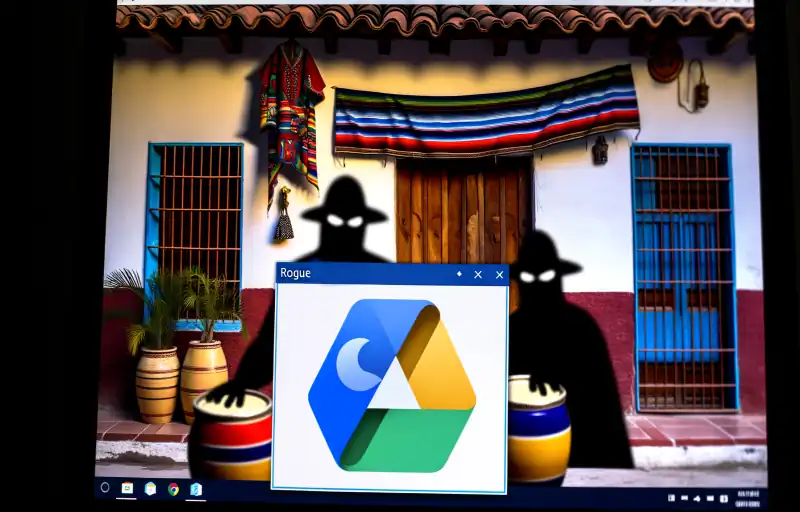
“Guard Your Data: Beware of Fake Google Drive Extensions Targeting Latin America (LATAM) Users”
Analyzing The Rise Of Malicious Chrome Extensions In LATAM: A Case Study On Phishing Tactics And Data Theft
In recent years, LATAM has seen a significant rise in cyber threats, with malicious Chrome extensions becoming a particularly insidious tool. Cybercriminals have honed their skills in crafting sophisticated phishing schemes that lead unsuspecting users to install rogue extensions, posing serious risks to personal and financial data. This trend underscores a broader shift in the tactics of cyber adversaries, who increasingly favor subtle methods of attack that can bypass conventional security measures.
The latest campaign to catch the attention of cybersecurity experts involves a cleverly disguised effort that targets users through phishing websites. These sites mimic legitimate platforms to an alarming degree of accuracy, often fooling users into believing they are accessing safe and trusted websites. Once the user is ensnared by the phishing site, the next phase of the attack involves prompting them to add a Chrome extension for what appears to be Google Drive. This step is critical as it plays on the trust and widespread use of Google’s services; many users, both individual and corporate, rely heavily on Google Drive for daily operations and data storage.
However, these rogue extensions are far from harmless. Once installed, they function as a Trojan horse, providing cybercriminals with a backdoor to a treasure trove of sensitive information. The extensions are capable of accessing everything from email contents and contact lists to file downloads and login credentials. What makes these extensions particularly effective is their ability to operate quietly in the background, gathering data without triggering typical security alerts that might otherwise warn users of suspicious activity.
This method of data theft represents a significant evolution in phishing tactics. Traditionally, phishing attacks have been relatively straightforward, relying on duped emails or fake web forms to harvest user data directly. However, by leveraging Chrome extensions, attackers can maintain prolonged access to a user’s data and activities, collecting information over time and reacting to changes in user behavior or security practices.
The implications of such attacks are profound, especially considering the vast amount of sensitive data processed through browsers. For businesses, this could mean exposure of proprietary information or financial details that could severely impact operations or competitive standing. For individuals, the risks run from identity theft to substantial financial loss.
Addressing this threat requires a multifaceted approach. Users must be educated about the dangers of installing unverified Chrome extensions, particularly those prompted by websites outside of the official Chrome Web Store. Additionally, organizations should implement advanced security protocols that can detect and respond to unusual browser extensions or changes in data access patterns.
There is a pressing need for cooperation among cybersecurity entities across Latin America to share intelligence about emerging threats and coordinate responses. Such collaboration could significantly enhance the ability to preemptively identify and neutralize threats before they manifest into full-blown attacks.
As we move forward, understanding and reducing the risks associated with malicious Chrome extensions will be crucial. Cybersecurity is no longer just about defending against known threats but anticipating new methods of attack that exploit our increasing reliance on digital tools. The case of rogue Chrome extensions in LATAM serves as a stark reminder of this ongoing battle in the digital age.














